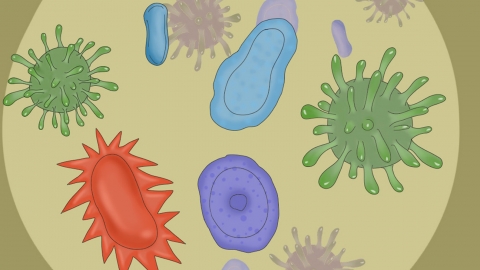Is penicillin effective against fungal infections?
Generally, penicillin is ineffective against fungal infections but may be effective against bacterial infections. If in doubt, it is recommended to seek medical advice in advance. Detailed analysis is as follows:

The mechanism of action of penicillin involves disrupting the structure of bacterial cell walls, thereby inhibiting or killing bacteria. However, fungi have a fundamentally different cellular structure, and their cell wall composition differs from that of bacteria. Penicillin cannot inhibit or kill fungi and therefore is ineffective in treating fungal infections.
If the infection is caused by bacteria and the bacteria are susceptible to penicillin, its use can effectively prevent bacterial proliferation, control the spread of infection, and help alleviate inflammation and other symptoms caused by bacterial infection, thus exerting therapeutic effects in such cases.
Before using penicillin, the type of infection must be clearly identified, and it should not be used for treating fungal infections. Medication must strictly follow medical instructions to avoid misuse. If symptoms do not improve or adverse reactions occur after taking the medication, the doctor should be informed promptly and the treatment plan adjusted accordingly.









